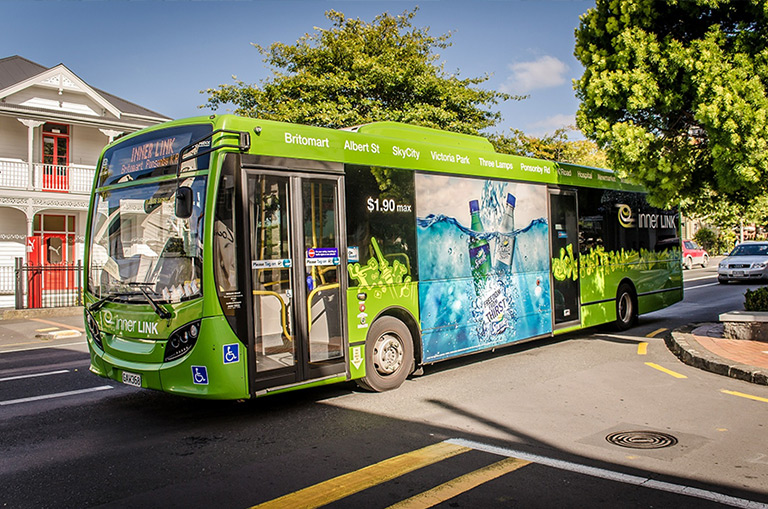
Bus Fleet Management Software UK : Simplify Real-time Data Management
Bus fleet management in today’s fast-paced world is not what it used to be. According to the latest report, UK transport operators lose millions annually due to inefficient fleet management practices, such as poor route optimization, delayed maintenance, and lack of real-time visibility. With the increasing demand for reliable, sustainable, and cost-effective transport solutions, fleet operators face growing pressure to stay ahead of the curve. An efficient bus fleet management software UK can address some of these issues.

Public and private transport networks form the backbone of urban and rural mobility in the UK. In such a region, bus fleet management goes far beyond just keeping vehicles on the road. Operators must juggle multiple responsibilities, including compliance with DVSA regulations, real-time tracking of buses, ensuring driver safety, optimizing fuel usage, and meeting passenger’s expectations for punctuality and comfort.
Without the right tools, these tasks can quickly become overwhelming, leading to higher costs, operational inefficiencies, and dissatisfied customers. On top of this, environmental concerns are reshaping the transport landscape. With the UK government pushing the net-zero carbon emissions by 2025, fleet operators must also focus on sustainability by cutting down emissions through smarter fleet management practices.
What is Bus Fleet Management Software?
Advanced bus fleet management software UK is a powerful tool, designed to simplify these complex operations. By leveraging real-time data, automation, and advanced analytics, this software empowers fleet operators to make informed decisions, optimize operations, and ultimately enhance the passenger experience.

This blog dives deep into how bus fleet management software can transform operations in the UK, focusing specifically on how it simplifies real-time data management—a key challenge for transport operators in the digital age. Whether you’re a public transport operator, a private tour company, or running school bus services, this article will showcase why adopting the right technology is no longer optional but essential for staying competitive.
Key Features of Bus and Fleet Transport Management Software
Fleet management software for buses plays the role of the brain of your operations, connecting all aspects of your fleet management into one cohesive system.
Some of the key features of bus fleet management software UK include:
Real-Time Tracking
This software provides a live view of your fleet’s location using GPS technology. Also, it helps monitor route adherence, delays, and unexpected detours. Bus fleet management system increases operational visibility and allows for proactive decision-making.
Driver Management
Using this software, a bus business can assign drivers to specific buses and routes based on schedules. It can track driver performance metrics, like driving hours, speed, and safety compliance. Also, it helps maintain regulatory standards like the UK’s Driver and Vehicle Standards Agency (DVSA) guidelines.
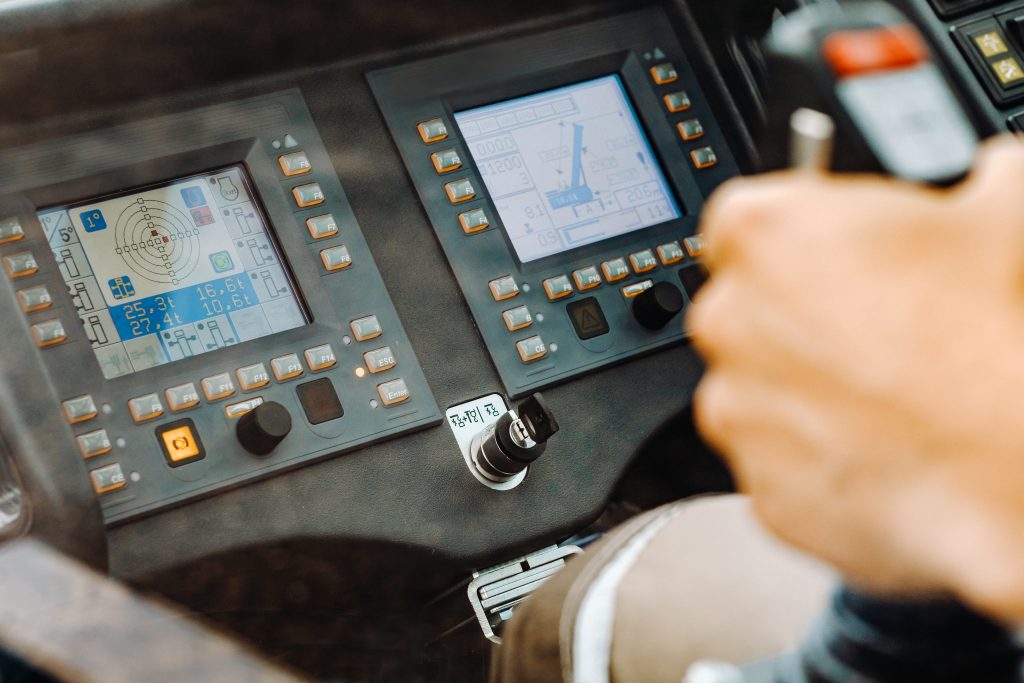
Route Optimization
Bus fleet transport management solution uses AI-powered algorithms to calculate the most efficient routes, minimize fuel consumption, reduce delays, and improve overall efficiency. Route optimization also considers factors, such as traffic, weather, and passenger pickup points.
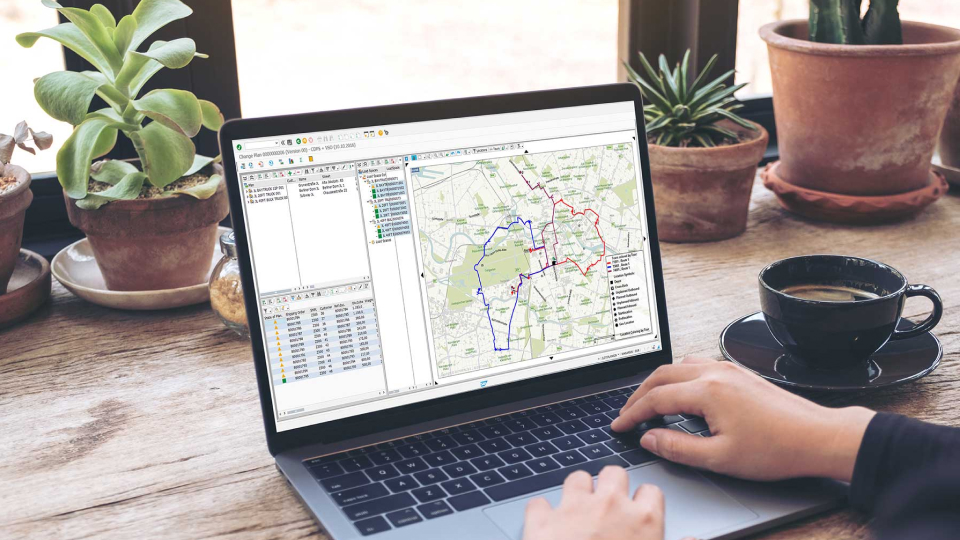
Maintenance Scheduling
With this software, bus businesses can keep track of vehicle service history and schedule preventive maintenance. It helps reduce downtime by identifying issues before they become costly repairs and ensures compliance with safety regulations.
Reporting and Analytics
Bus transport fleet management software generates detailed reports on fleet performance, fuel usage, costs, and more. It helps bus operators identify trends and make data-driven decisions providing insights for long-term planning and sustainability.
Key Benefits of Bus Fleet Management in the UK
In the UK’s transport industry, real-time data is critical for ensuring operational efficiency and meeting passenger expectations. With buses operating in busy urban areas, small delays or inefficiencies can ripple through an entire fleet. Bus fleet management software integrated with a real-time data management system has multiple benefits, such as:
Real-Time Visibility
Bus fleet management solutions can provide real-time tracking and visibility and this is the most important benefit of the software. Operators are allowed to monitor the exact location of every bus in the fleet through GPS technology. This visibility allows for:
Proactive Decision-Making
Identify delays, route deviations, or breakdowns instantly and take corrective action.
Enhanced Passenger Communication
Provide live updates to passengers regarding bus arrival time, minimizing frustration and improving satisfaction.

Operational Oversight
Fleet managers can oversee the operations from a single dashboard, even when managing large fleets across multiple locations.
Improved Compliance
Transport operators in the UK must adhere to strict regulations set by the Driver and Vehicle Standards Agency (DVSA) and other governing bodies. Bus fleet management software helps ensure compliance by :
Monitoring Driver Hours
Automatically track hours to prevent overworking and meet legal requirements for rest periods.
Vehicle Maintenance Logs
Keeping a detailed record of inspections, maintenance, and repairs to satisfy regulatory audits.
Safety Standards
Ensuring that both vehicles and drivers meet safety regulations, reducing the risk of fines and penalties.
Cost Savings
Effective fleet management has a direct impact on the bottom line as it reduces operational costs. Here’s how :
Fuel Optimization
By analyzing fuel usage and optimizing routes, the software helps minimize fuel consumption, which is a significant cost driver for fleet operators.
Preventive Maintenance
Scheduling regular maintenance based on vehicle usage and health prevents costly breakdowns and unplanned repairs.
Idle Time Reduction
Monitoring and reducing engine idling saves fuel and decreases wear and tear on buses.
Better Passenger Experience
Modern passengers look for reliable, timely, and convenient transport services. Fleet Management software improves the passenger experience by:
Accurate ETAs
Real-time tracking ensures passengers receive updates on bus locations and estimated arrival times, reducing wait times and frustration.
Smooth Operations
Fewer delays and breakdowns mean passengers can rely on consistent service.
Custom Notifications
Notify passengers about schedule changes, delays, or alternative routes via integrated communication systems.
In cities like Edinburgh, where public transport plays a key role in mobility, improved passenger satisfaction directly translates to increased ridership and better public perception.
Sustainability and Environmental Impact
As the UK is focusing on achieving net-zero emissions by 2050, bus businesses can contribute to this mission by reducing the environmental impacts of their fleets with bus fleet management software UK.
Route Optimization
Reducing unnecessary mileage lowers emissions and fuel consumption.
Eco-Driving Insights
Encouraging drivers to adopt fuel-efficient driving practices through performance analytics.
Integration with Electric & Hybrid Buses
Supporting operators transitioning to greener fleets by providing data on charging schedules, energy usage, and range optimization.
Improved Driver Management and Safety
Drivers play a pivotal role in the success of any fleet operation. Bus fleet management software supports them by:
Streamlined Scheduling
Automating shift assignments to ensure fair workloads and reduce scheduling conflicts.
Driver Performance Tracking
Monitoring metrics like speed, braking, and adherence to routes to identify areas for improvement.
Safety Alerts
Providing instant alerts for unsafe driving behaviors, such as speeding or harsh braking.
This not only enhances safety for drivers and passengers but also helps build a positive work environment, reducing driver turnover.
How AllRide Simplifies Real-time Data Management
Real-time data management is at the heart of efficient fleet operations. Without it, bus fleet operators struggle with inefficiencies, delays, and dissatisfied customers. AllRide’s bus fleet management software simplifies real-time data management by centralizing data collection, automating processes, and providing actionable insights—all in one platform. Here’s how:
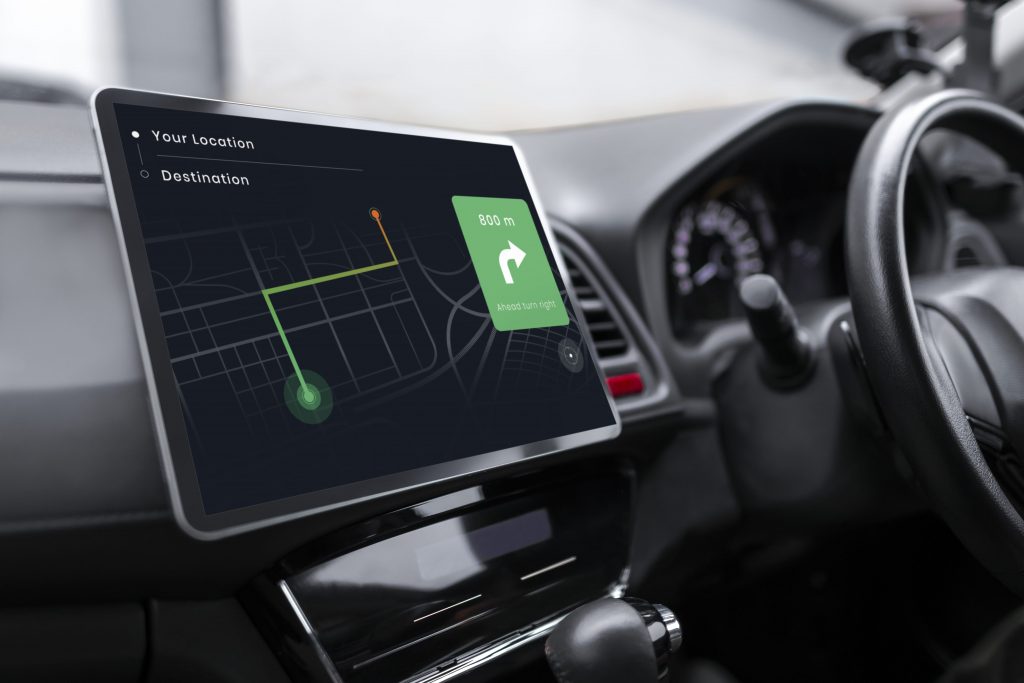
1. Centralized Dashboard for All Data Insights
AllRide’s Bus fleet management software offers a centralized dashboard that acts as a command center for fleet operations. This dashboard collects and displays data from multiple sources, such as GPS trackers, driver apps, and maintenance systems, in real-time. Benefits include:
Single Source of Truth
Eliminates the need to switch between spreadsheets or multiple systems, saving time and reducing errors.
Real-Time Alerts
Operators receive instant notifications for route deviations, delays, or vehicle issues, enabling proactive responses.
Customizable Views
Dashboards can be tailored to highlight specific metrics like fleet performance, fuel usage, or driver safety.
For example, a transport operator in Birmingham can monitor the location of 50+ buses, track live ETAs, and analyze performance trends—all on one screen.
2. Predictive Analytics for Proactive Management
Advanced bus fleet management software leverages predictive analytics to anticipate issues before they occur. By analyzing historical and real-time data, the software can:
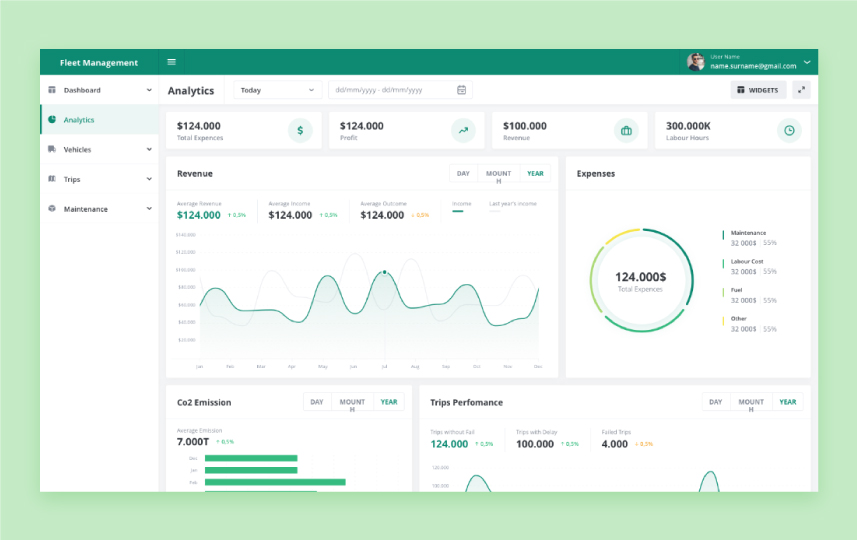
Prevent Breakdowns
Predict when vehicles will need maintenance based on usage patterns, reducing unplanned downtime.
Optimize Routes
Suggest alternate routes in real-time based on traffic congestion, weather, or road closures.
Improve Driver Performance
A. Identify unsafe driving behaviors and provide insights to address them proactively.
B. For instance, operators in London can receive alerts about traffic bottlenecks during peak hours and automatically reroute buses to maintain schedules.
3. Mobile App Integration for On-the-Go Management
AllRide’s fleet management solution often includes mobile apps for operators, drivers, and even passengers, enabling seamless communication and data sharing. Mobile integration offers:
For Operators:
A. Monitor fleet performance and receive alerts on mobile devices.
B. Access reports and analytics remotely, ensuring flexibility in operations
For Drivers:
A. Navigate routes with real-time updates and clear instructions.
B. Report vehicle issues or incidents instantly using in-app tools.
For Passengers:
A. Track buses in real-time and receive updates on ETAs or delays.
B. Get notifications about route changes or cancellations.
This feature is particularly valuable for rural areas or smaller operators who need to manage fleets without being tied to a desktop.
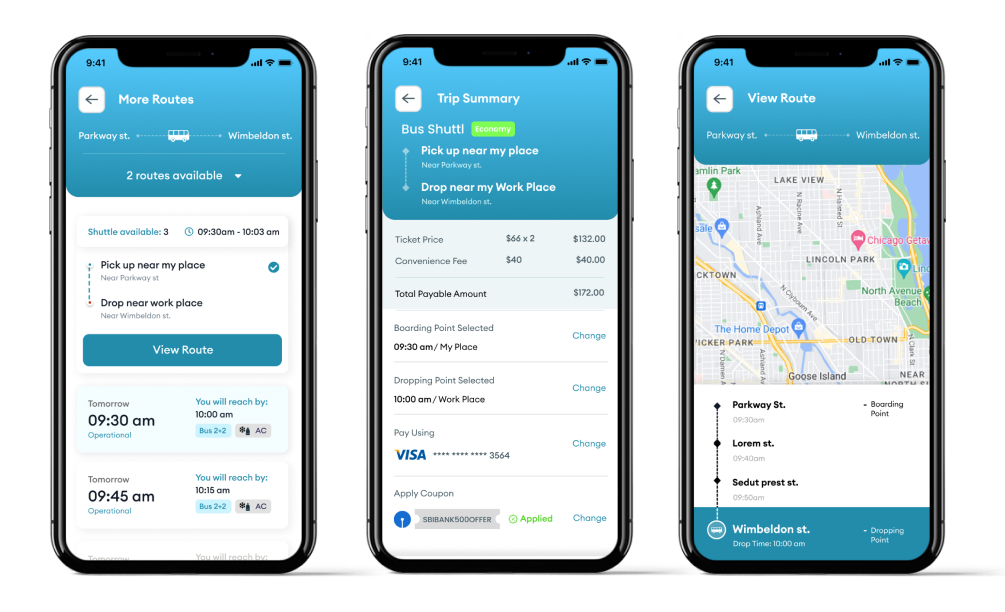
4. Cloud-Based Systems for Secure and Accessible Data
Modern bus fleet management software operates on cloud-based platforms, ensuring secure and scalable data storage. Key benefits include:
Data Accessibility
Operators can access real-time data from anywhere, whether they are in the office, at home, or on the move.
A. Data Security
Advanced encryption and secure access protocols protect sensitive information like driver details, fleet schedules, and passenger data.
B. Scalability
As the fleet grows, cloud-based systems can handle increased data loads without requiring significant infrastructure investments.
5. Automated Processes for Improved Efficiency
By automating key fleet management tasks, the software reduces manual workload and ensures accuracy. Automation simplifies:
Scheduling and Dispatching
Automatically assigns drivers and buses to routes based on availability and capacity.
Maintenance Alerts
Sends reminders for scheduled maintenance and flags potential issues detected through vehicle sensors.
Compliance Management
Tracks driver hours and vehicle inspection logs, ensuring adherence to UK-specific regulations like those set by the DVSA.
This automation not only saves time but also minimizes human errors, making operations smoother and more efficient.
6. Integration with Existing Systems
To streamline data management further, bus fleet management software integrates seamlessly with existing tools such as:
A. Ticketing Systems
Syncs with ticketing platforms to provide a unified view of passenger data, revenue, and bus occupancy.
B. Payroll Systems
Tracks driver hours and generates accurate payroll reports.
C. Fuel Management Systems
Monitors fuel usage in real-time and identifies inefficiencies.
For example, a public transport operator in Glasgow integrated their fleet management software with their ticketing system, enabling them to analyze passenger demand and optimize routes accordingly.
7. Actionable Insights for Better Decision-Making
One of the most significant benefits of real-time data management is the ability to generate actionable insights. With detailed analytics and reporting features, fleet operators can:
A. Track KPIs
Measure performance metrics like fuel efficiency, driver productivity, and on-time arrivals.
B. Identify Trends
Analyze historical data to identify patterns in passenger demand, peak hours, and maintenance needs.
C. Make Data-Driven Decisions
Use insights to plan new routes, improve service quality, and allocate resources effectively.
For instance, a private tour company in the UK used its fleet management software to analyze route data, leading to the removal of underperforming routes and a 20% increase in profitability.
8. Seamless Communication Between Stakeholders
Real-time data management also facilitates seamless communication between key stakeholders, including:
A. Fleet Managers
Monitor operations and communicate updates to drivers instantly.
B. Drivers
Receive live route updates and report issues in real time.
C. Passengers
Get notifications about delays, cancellations, or ETAs directly on their mobile devices.
This enhanced communication helps reduce confusion, improve collaboration, and deliver a better overall service experience.

Future Trends in Bus Fleet Management Software in the UK
As technology continues to evolve, the landscape of bus fleet management is transforming rapidly. The future promises innovative solutions that enhance efficiency, sustainability, and passenger satisfaction. Below are the key trends that will shape the future of bus fleet management, particularly in the UK.
A. AI and Machine Learning
B. Electric and Autonomous Fleets
C. IoT in Fleet Management
Take the First Step Toward Smarter Fleet Management
Managing a bus fleet in the UK has become increasingly complex due to rising operational costs, stricter regulations, evolving customer expectations, and the need for sustainability. Traditional methods of fleet management are no longer sufficient to address these challenges. This is where bus and transport fleet management software emerges as a transformative solution, offering a comprehensive platform to streamline operations, enhance efficiency, and ensure compliance.
From real-time tracking and predictive analytics to automated processes and actionable insights, fleet management software simplifies the most intricate aspects of managing a fleet. Whether you’re overseeing a large public transport network in a bustling city like London, operating a private tour service in Edinburgh, or managing school buses in rural areas, this technology can revolutionize the way you operate.
If you’re looking to elevate your fleet operations and simplify real-time data management, now is the time to explore the right bus fleet management software UK tailored to your needs.





